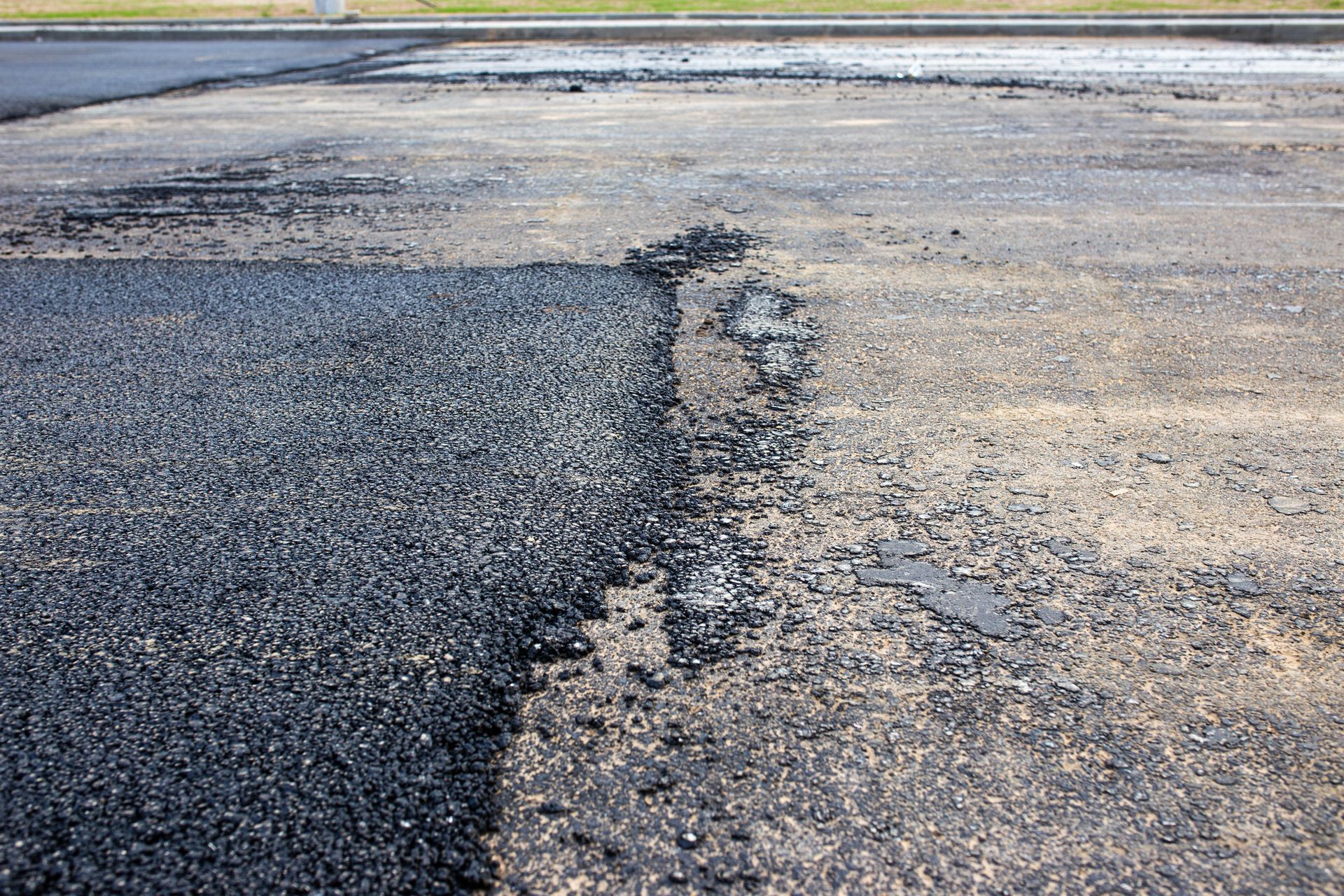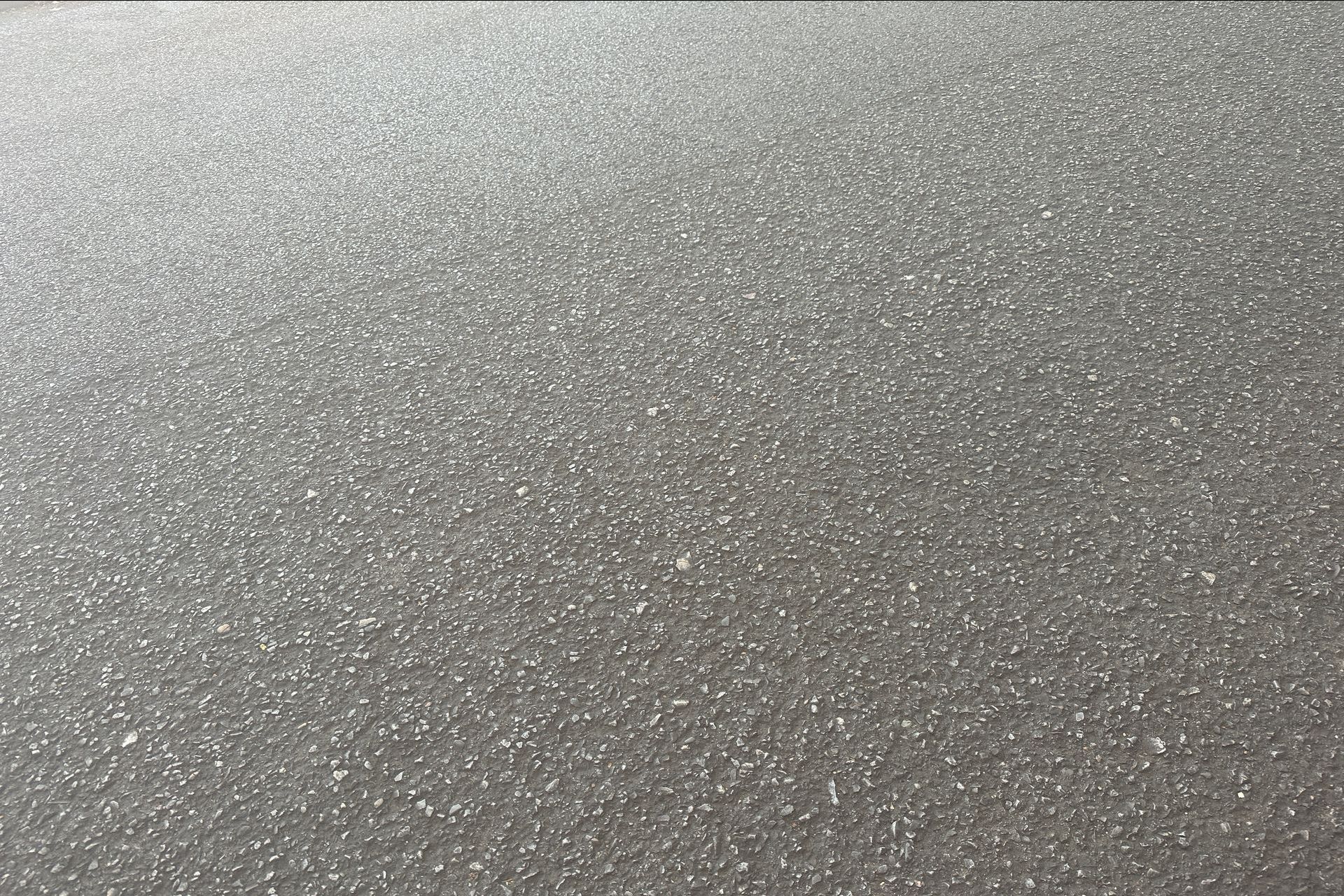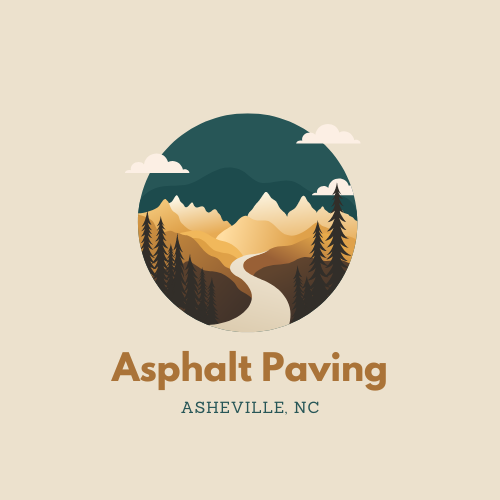Asphalt Paving
Asheville, NC
Asphalt: A Smooth and Aesthetic Surface With a Wow Factor
Asphalt creates some of the smoothest and most pleasant surfaces that exist. When properly installed, asphalt pavement looks dark, shiny, and modern. The natural color of asphalt creates a nice contrast with the surroundings, improving appearance. Asphalt mixtures are also soft and flexible, resulting in a somewhat cushioned feel on the feet. At Asphalt Paving of Asheville, we can give your surface the attractive look you want. Our expert team takes pride in providing top-notch asphalt pavement construction services that guarantee a long-lasting and durable surface.
We install and repair:
- Asphalt parking lots
- Asphalt driveway
- Asphalt roadway
- Any other asphalt surface
Choose Asphalt Paving Asheville NC. Call us today at 828-818-8482 to get started with a free estimate!
Our Complete Process for Asphalt Installation
- Surface Preparation - Our process begins with the removal of the existing asphalt or surface, including any roots or weeds that may interfere with the new asphalt.
- Grading - Next, we meticulously grade the surface to ensure proper water drainage, eliminating any standing water issues that can lead to potholes and cracks in the asphalt. With our skillful grading and sloping, any water that falls onto your new driveway will run off without collecting.
- Sub Base Layer - The sub base layer installation follows, serving as the foundation for the driveway and frost barrier at freezing temperatures. We use a crushed aggregate material, such as gravel, to create a 6-8 inch layer that undergoes a quality check using rolling. If any flexing or weak spots are found, we will reinforce the area of the sub base using undercutting or geo-gridding, ensuring a strong and supportive sub base.
- Binder Layer - The binder course layer installation comes next, using bitumen, a petroleum-based liquid, to hold the surface layer together. The liquid asphalt binder serves as the glue for the aggregates.
- Surface Layer - Finally, we install the aggregate surface layer, composed of crushed stone, gravel, or sand, on top of the binder layer. This is the exposed top layer. The binder and aggregate surface layers combine to form fresh, smooth, and shiny asphalt around 2.5 to 3.5 inches thick, depending on desired strength.
- Joints and Transitions - We pay close attention to joints and transitions, perfecting them to ensure a smooth surface and proper water drainage.
- Smoothing and Compacting - The final step is to smooth and compact the whole driveway, ensuring a completely finished and flat surface. While typical drying time for your new asphalt surface is 2-3 days, curing can take up to 6 months. Nevertheless, the driveway can be used as soon as it has dried.
Benefits of Choosing Asphalt Pavement
Compared to many surface options available, such as concrete or stone, asphalt is the more affordable and cost effective choice. When it comes to paving options for your parking lot or new pavement project, asphalt pavement stands out as a popular and highly advantageous choice. With its numerous benefits, it's no wonder that asphalt has become the preferred material for roads, highways, and parking lots across the globe. In this article, we will explore the top benefits of choosing asphalt pavement: affordability, easy repairs, quick curing, and aesthetics.
Asphalt is More Affordable
One of the most significant advantages of asphalt pavement is its affordability. Compared to other paving materials, such as concrete, asphalt is more cost-effective, making it an excellent choice for projects with budget constraints. The production and installation costs of asphalt are generally lower, resulting in significant savings for both residential and commercial applications. Furthermore, asphalt requires minimal maintenance over its lifespan, reducing long-term expenses and making it an economical option.
Asphalt Is Easy to Repair
Another benefit that sets asphalt apart is its ease of repair. Over time, all pavements are subjected to wear and tear due to heavy traffic, changing weather conditions, and other factors. However, asphalt pavement is relatively easy to repair, and its maintenance is less disruptive compared to other materials. Cracks, fatigue cracking, and potholes are common issues that can develop on any pavement, but with asphalt, these problems can be efficiently addressed. Repairs can be as simple as filling cracks or potholes with asphalt mix, making it a hassle-free process that ensures the longevity and functionality of the pavement.
Asphalt Cures Quickly
The quick curing time of asphalt is yet another advantage worth mentioning. When new asphalt is laid, it requires time to cool, dry, and harden to achieve its optimal strength. The curing process can take anywhere from a few hours to a few days, depending on various factors. However, compared to other paving materials, asphalt has a relatively fast curing time, allowing for quicker access and reduced downtime. This means that newly paved asphalt surfaces can be opened to traffic sooner, minimizing disruptions and maximizing convenience.
Asphalt Looks Modern and Aesthetic
In addition to its practical benefits, asphalt pavement also offers aesthetic advantages. The smooth and sleek appearance of asphalt adds a touch of elegance to any property, enhancing its overall visual appeal. Asphalt can be customized with different finishes and colors, providing versatility in design options that can complement various architectural styles. Whether it's a residential driveway or a commercial parking lot, asphalt can lend a polished and professional look to its surroundings. Asphalt's aesthetic appeal adds value to any property.


How Thick Should the Asphalt Be for a Road, Driveway, or Parking Lot?
The thickness of asphalt we use for a road, driveway, or parking lot depends on several factors, including the intended use, expected traffic load, and local climate conditions. Here are some general guidelines for asphalt thickness:
- Residential driveways: For a typical residential driveway, the recommended asphalt thickness is usually between 2 to 3 inches (5 to 7.5 cm). This thickness is adequate to support personal vehicles and light traffic.
- Commercial pavement and parking lots: The asphalt thickness for commercial driveways and parking lots can vary depending on the expected traffic load. Typically, a thickness of 3 to 4 inches (7.5 to 10 cm) is common for light to moderate traffic. For heavy-duty applications or high-traffic areas, the thickness can range from 4 to 6 inches (10 to 15 cm) or more.
- Community Roads: The asphalt thickness for local community roadways is usually much thicker due to the medium to high traffic loads. It can range from 4 to 6 inches (10 to 15 cm) for low-volume roads and up to 10 inches (25 cm) or more for high-volume highways.
Types of Asphalt
There exist a variety of asphalt mixes that each have a different level of quality and serve unique uses. We know that understanding the differences between the types of asphalt may be difficult, so we've broken it down for you here:
Hot Mix Asphalt
Hot mix asphalt is most commonly used for roads and pavements due to its tough resistance to cold and hot weather. This type of asphalt mix is a combination of fine and coarse aggregate along with a binder. What makes hot mix asphalt unique is that it is heated to between 300 and 350 degrees Fahrenheit before pouring.
Warm Mix Asphalt
Warm mix asphalt is most commonly used for ease of installation. This type of asphalt mix is very similar in composition to hot mix asphalt. However, warm mix asphalt is only heated to between 30 and 120 degrees Fahrenheit. The temperature it is heated to before pouring means that it actually cools slower than hot mix asphalt. The slower cooling process and lower temperature means that warm mix asphalt can be more effectively applied at cold temperatures during winter months and is relatively easier to install.
MC Cold Mix Asphalt
MC cold mix asphalt is only used for temporary repair purposes. Cold mix asphalt is applied while cold, making it extremely easy to install, even in cold weather. However, this type of asphalt mix is also weaker than hot mix or warm mix asphalt, making it suitable for temporary repair-work only.
Dense-Graded Asphalt
Dense-graded asphalt is a strong asphalt mix most commonly used for pavements that experience high traffic or heavy loads. Dense-graded asphalt is less permeable than other types, making it stronger and more durable against cracks and potholes.
How Much Does a New Asphalt Surface Cost?
The price of asphalt pavement installation will vary based on factors such as surface area and asphalt thickness. The price per square foot typically ranges from $7 to $12, materials and labor included, with the average being for a standard thickness of 3 inches. Thicknesses can range from 2.5 to 4 inches depending on desired strength. Replacing existing pavement or surfaces may cost around $1 to $2 more per square foot due to extra demolition required.
For example, an asphalt driveway of around 600 square feet would cost somewhere between $4,200 and $7,200, with $5,400 being for the average 3 inch thickness.
